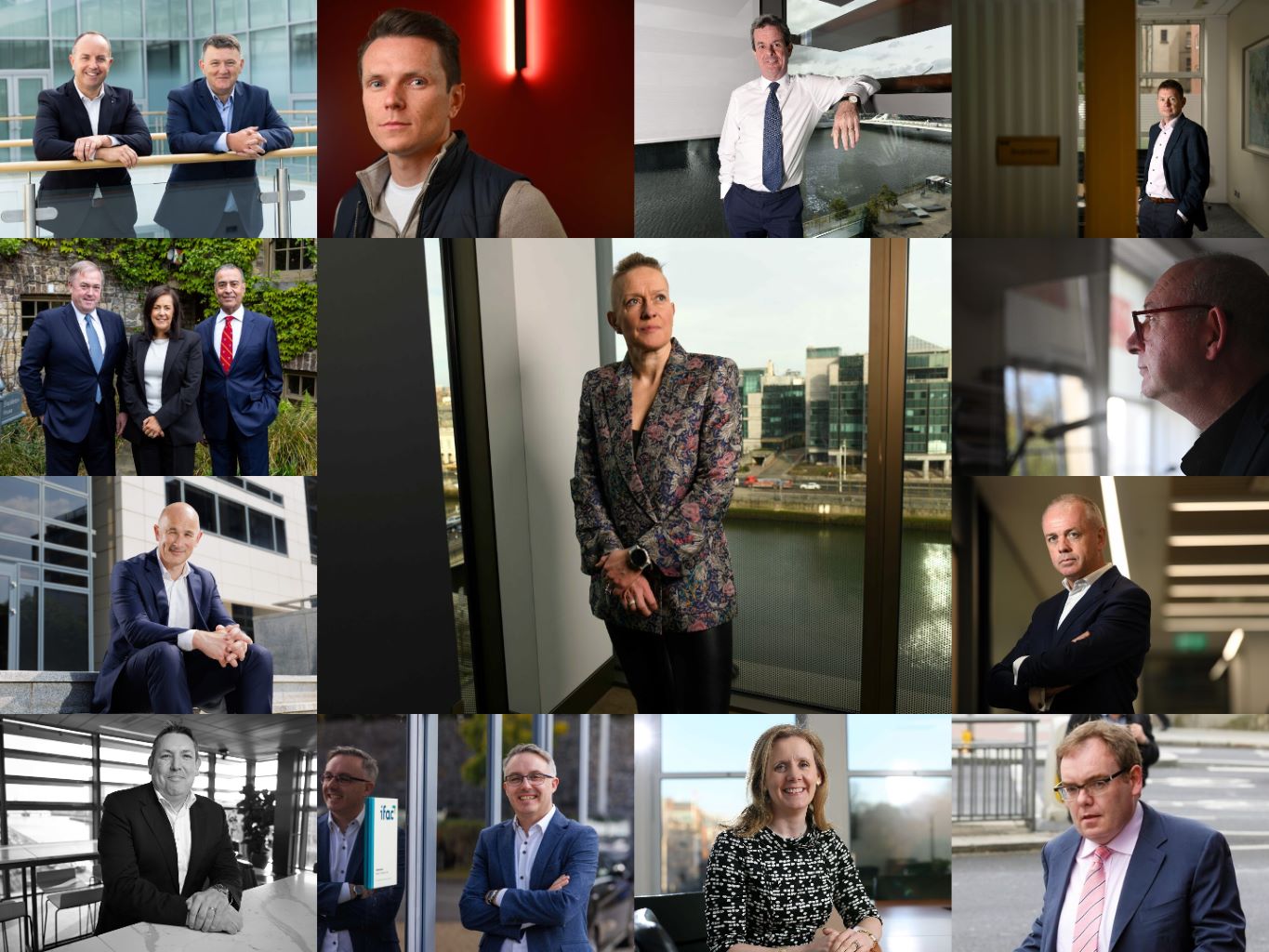The Irish accountancy market has gone through a period of significant change, marked by consolidation, new entrants and deals. Many have involved private equity.
Interpath Advisory, a private equity-backed British insolvency specialist, entered the Irish market by recruiting some of the best-known insolvency practitioners in the country, including Kieran Wallace and Eamonn Richardson from KPMG and Ken Fennell from Deloitte.
Cork accountancy and wealth management firm Quintas was bought in September by UK and Irish group Xeinadin. Xeinadin is backed by private equity firm Exponent.
ETL Global, a German-based accounting firm, acquired 51 per cent of the Noone Casey practice in Dublin last year, while Ifac Group, a farming and agribusiness accountancy firm, bought corporate restructuring and forensic accounting specialists Friel Stafford last summer.
Azets Ireland recently agreed a deal to merge with rival PKF O’Connor, Leddy & Holmes as part of an expansion that began with its purchase of Baker Tilly Ireland. The Baker Tilly brand representative in Ireland is now Roberts Nathan, which merged with UK firm MHA earlier in May.
The list goes on. Meanwhile, changes are being mooted among the big-four practices also. In 2018, Grant Thornton’s Irish operation had revenues of €118 million and a headcount of 1,400. By the end of last year, revenues had ballooned to €300 million while staff numbers had grown to 3,000. Its Irish operation is now being circled by private equity buyers.
More change is expected. In the UK, regulators have been pressing the big accountancy practices to split consulting and auditing practices to avoid potential conflicts. It was a trigger for the Teneo and Interpath acquisitions of the restructuring practices of Deloitte and KPMG in the UK.
The Irish regulators have not been so aggressive, but change is coming.
For all the change, the big-four accountancy firms remain strong, massively important players in the Irish market. And they too are expanding into new areas and new service lines.
KPMG launched KPMG Law in 2022, allowing it to compete in some areas with traditional law firms. EY also launched a law division, adding to its repertoire. All the big four are working hard on building practices in new areas like artificial intelligence.
ESG is now an established area of advisory expertise. PwC’s recent Leadership Exchange event demonstrated that Irish senior executives are eager to get the best advice on how to adapt to this new future. KPMG announced in May it was hiring 200 people for its EU AI Hub based in Dublin. In November 2023, PwC launched its impressive Generative AI Business Centre, in partnership with Microsoft.
Digital transformation, climate and assurance services drove Deloitte to a 12 per cent rise in revenues to €479 million for the 12 months to the end of May. It also announced 200 new jobs in Cork, last year.
Even the representative bodies are changing. The Institute of Certified Public Accountants in Ireland is joining forces with Chartered Accountants Ireland. The objectives of the amalgamation include supporting the accountancy profession more efficiently with combined scale and resources, increasing the influence of the profession in Ireland, and offering an enhanced member proposition to attract new candidates.
Over the last five years, The Currency has sought to chronicle the business of accountancy in Ireland. We have spoken to the key figures in the sector – from managing partners to industry leaders. We have also written extensively on the wave of consolidation within the industry, and the impact of private equity in the sector.
Here is a selection of pieces from our archive:
“The age demographic has changed. Almost two thirds of members are under 44”
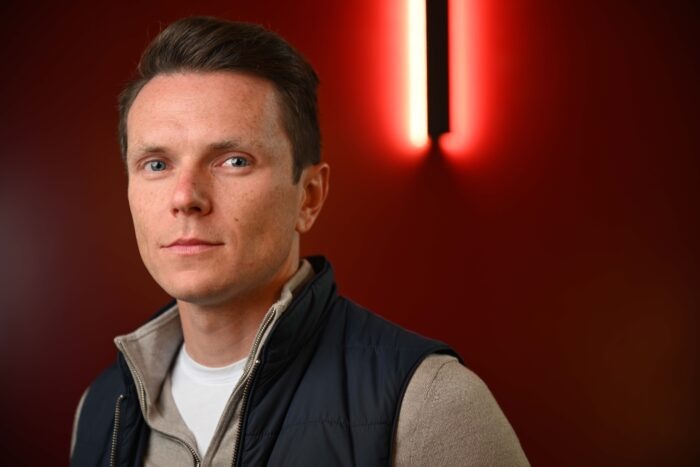
In mid-2024, Barry Doyle became the youngest-ever president of Chartered Accountants Ireland (CAI), an organisation that traces its origins back to a Royal Charter in 1888 and has 33,000 members. Under his watch, that number will increase by a further 5,000 with CAI on the cusp of absorbing Certified Public Accountants in Ireland (CPA), another accountancy body, in a high-profile merger.
By his own admission, Doyle represents a new generation of accountants and he is determined to leave his imprint on the role. He wants to use his influence – and that of the organisation he leads – to promote policies that stimulate investment in start-ups and ease the burden on indigenous businesses.
His own background helps. He may have trained in a big-four firm, but he has spent much of his career working in technology, media and investment. In this interview, the then 36-year-old talks about careers, the Irish business landscape, and his plans for his presidency.
“I’d say the institute could be a little bit nervous about what I might do”
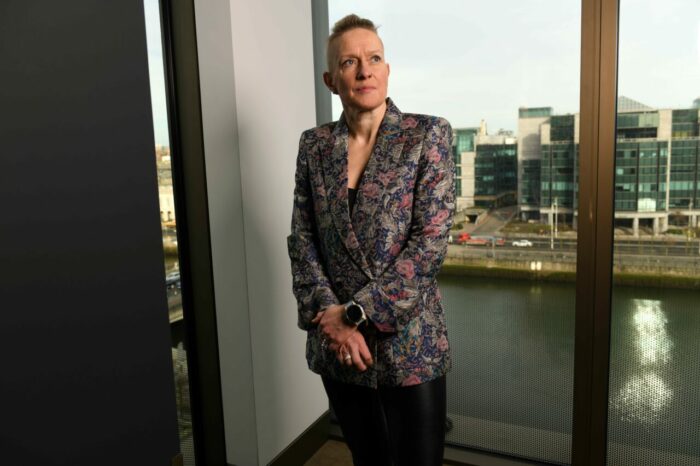
In 2010, Sinead Donovan asked herself a straightforward question: “Do I want to be an auditor for the rest of my life?” The answer was no. “I knew I could not be an auditor for the rest of my life. It was going to kill me,” she said in a candid 2023 interview.
So, along with a colleague, she pitched the idea of a new division to her then-managing partner at Grant Thornton, Paul McCann: one that would service the needs of multinational clients.
It took off, and Donovan’s career went with it. When she was interviewed by The Currency, she was chair of Grant Thornton and incoming president of Chartered Accountants Ireland.
Articulate, thoughtful, and cutting a colourful dash that is a world removed from many of the suited accountants she would be representing, Donovan has strong views on the future of both the profession – and the wider corporate boardroom – shaped in part by her own experiences of breaking into it.
Having sold a majority stake in his accountancy firm, Anthony Casey is now hunting for 20 more firms to do the same
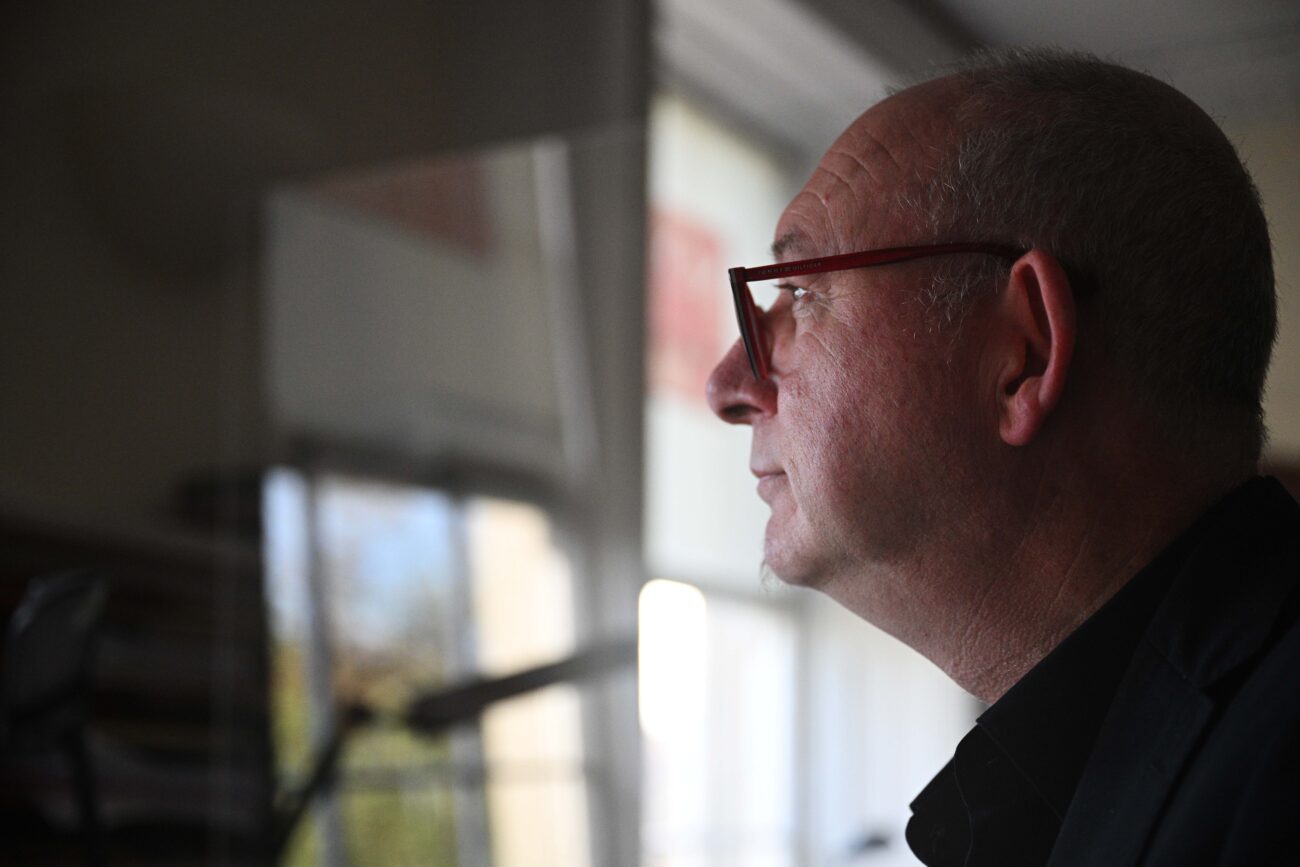
In 2023, the mid-tier accountancy firm Noone Casey sold a 51 per cent stake to ETL Global, a German multinational professional services business. The move allowed co-founder Andrew Noone to exit the business and the appointment of a number of new partners. The other founding partner Anthony Casey stayed on, however, installed as master partner for ETL Ireland and charged with identifying businesses for acquisition.
ETL wants to acquire 51 per cent of up to 20 independent accountancy firms over the coming years, specifically firms with a strong regional presence or significant sectoral expertise. All will be allowed to retain their own names. In this interview, Casey talks about how the deal came about, the EFL model, and the consolidation of the sector.
“You are only doing your job, but you really feel for the people that suffer”
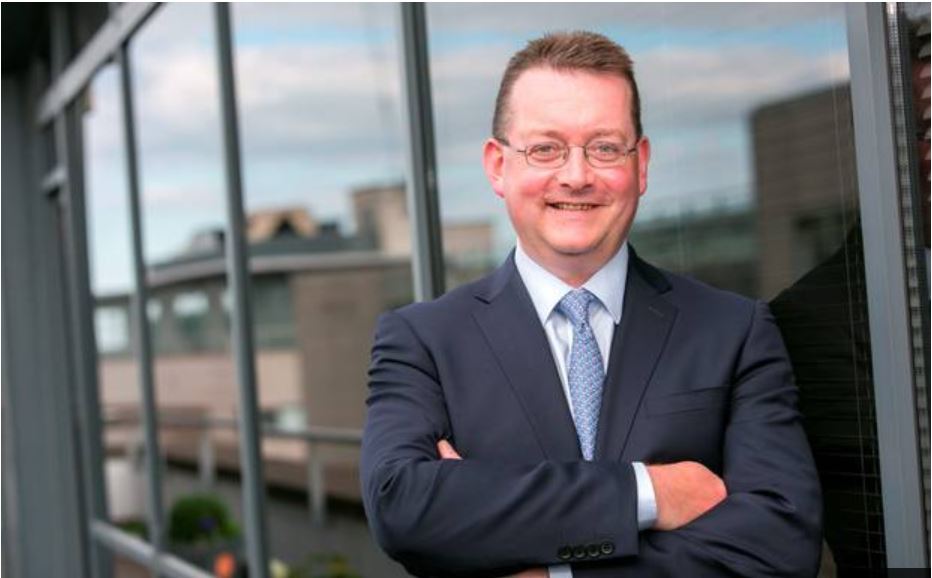
Kroll is often regarded as a competitor to the big four (Deloitte, KPMG, Grant Thornton and PwC). In this interview, however, the firm’s managing director Declan Taite details the differences that make his firm different. He also talks about his own career journey and the history of Duff & Phelps, which has roots dating back to the 1930s in the States; working in RSM Farrell Grant Sparks; its later acquisition by Duff & Phelps and its subsequent integration into Kroll.
An independent man: HLB Ireland’s Mark Butler on making acquisitions and rebuffing approaches
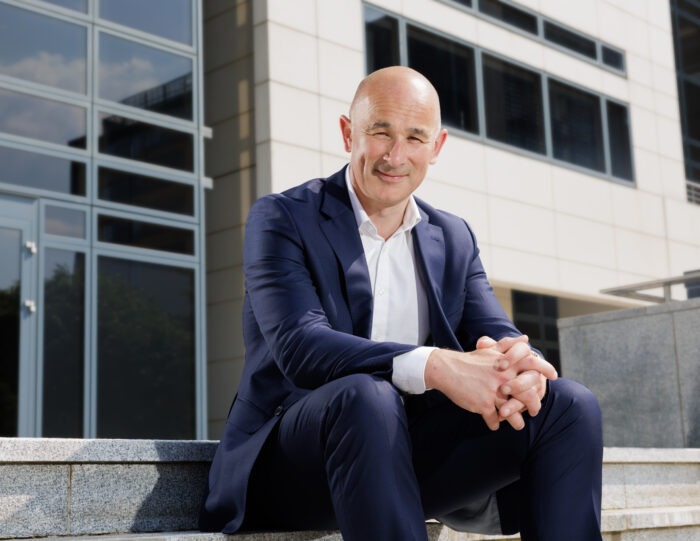
Mark Butler joined HLB in 2003 and has been managing partner for over a decade. The firm traces its roots back to 1976. Independent and Irish-owned, it is also part of the HLB global network of similar independent firms across 153 countries employing almost 30,000 people.
He spoke to The Currency after its acquisition of John McCarrick & Associates, a boutique accountancy firm founded in 1990 by former Irish international runner John McCarrick. The deal was the fifth transaction HLB Ireland has been involved in as it continues to scale its business. Butler gave the rationale for the deal and outlined his firm’s expansion plan.
Roberts Nathan is merging with one of Britain’s largest accountancy groups – This is why
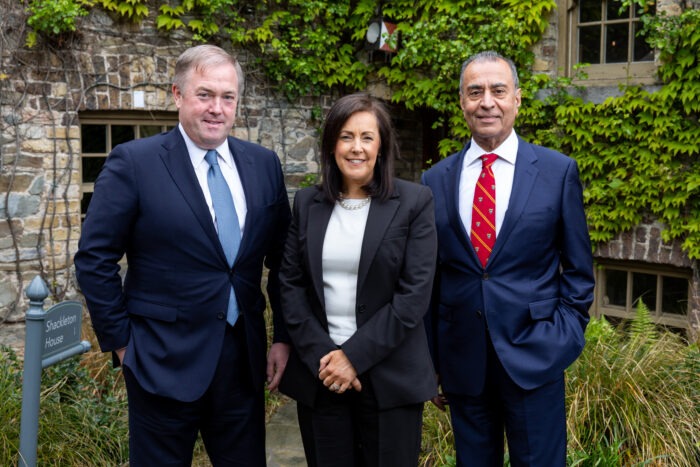
In early 2023, Britain’s 13th-largest accountancy group MHA approached Irish mid-sized accountancy and advisory firm Roberts Nathan to see if it was interested in merging. The Irish firm, which employs 70 people and has offices in Dublin and Cork, had been approached before but this deal caught its interest. This time, however, it was interested. By May, the deal had closed. Vivian Nathan explained why.
Enda McDonagh’s call to action: “There are huge changes coming for businesses”
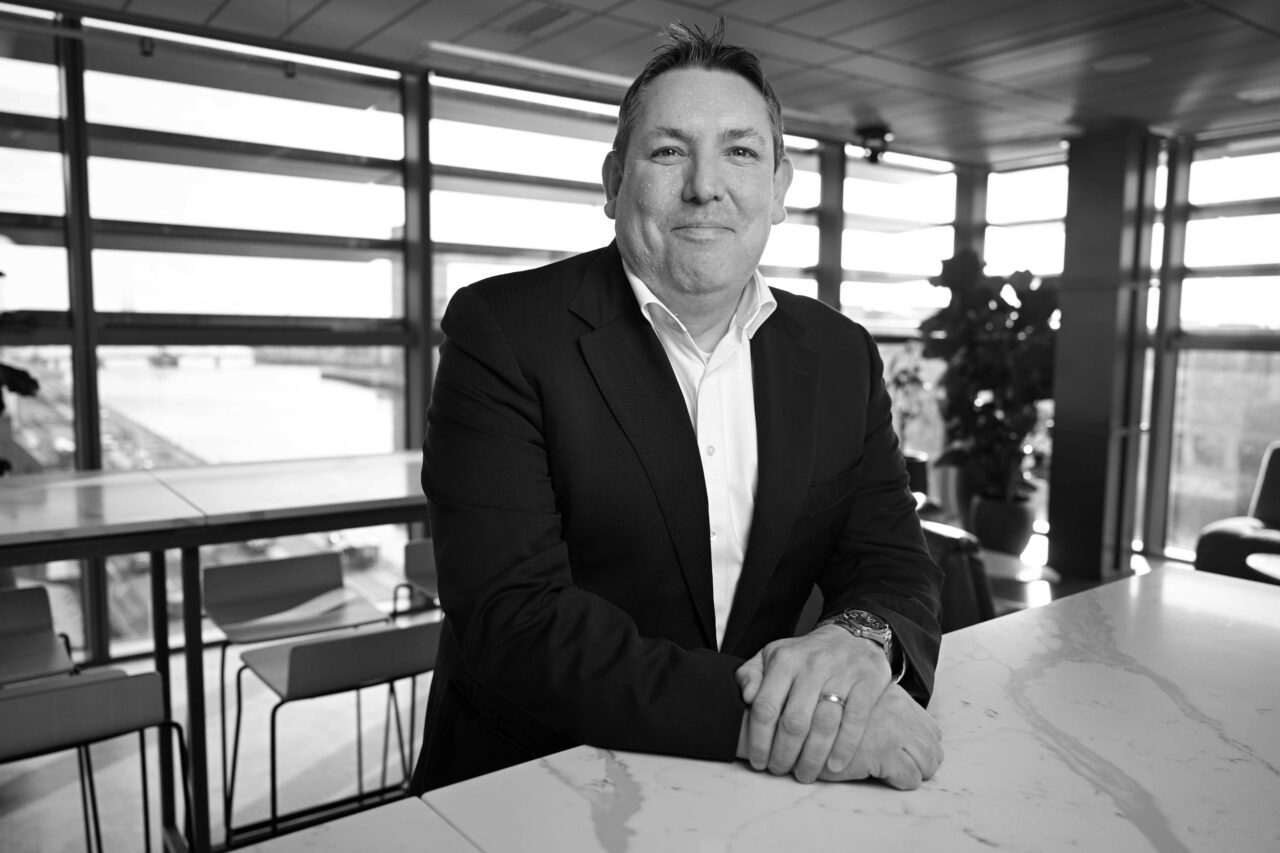
The view of the river Liffey from Enda McDonagh’s corner office in Dublin is framed on the right side by the arc of the curved glass of the Convention Centre and in the background to the left by the cantilever span of the Samuel Beckett Bridge. Dotted around his office are sporting memorabilia reflecting his love of the GAA, soccer, and American sports from his time working for PwC in Boston in the early noughties.
“I’m a big lover of sport,” McDonagh said in a 2024 interview.
He spoke to The Currency as his firm, PwC, launched a survey of Irish and global CEOs. From AI to climate to regulation, the managing partner of the big-four firm explained how companies are facing unprecedented challenges and re-invention is the new norm.
The man from Mazars: Tom O’Brien on inflation, expansion and tackling the big four
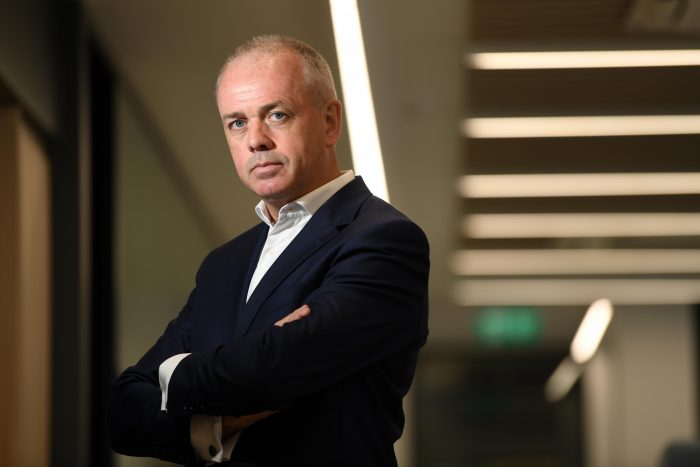
At the beginning of 2022, Tom O’Brien began his latest role: managing partner at Mazars. He joined the firm in 2000 and had been head of advisory services since 2014. When the former managing partner Mark Kennedy decided to step back, O’Brien said he was approached by a cohort of partners asking him to put his name forward.
He took over a growing firm during a time of change. Turnover has increased by 75 per cent at Mazars since 2015 while staff numbers have increased to 550. O’Brien describes Mazars as a challenger to the established order, looking to take business from the incumbents. “We are chasing that same work,” he says. In this interview, he talked about being a liquidator during the crash, his ambitions for Mazars and the outlook for the Irish economy.
Seamus Hand on corporation tax reform, the future of aviation and steering KPMG through the pandemic
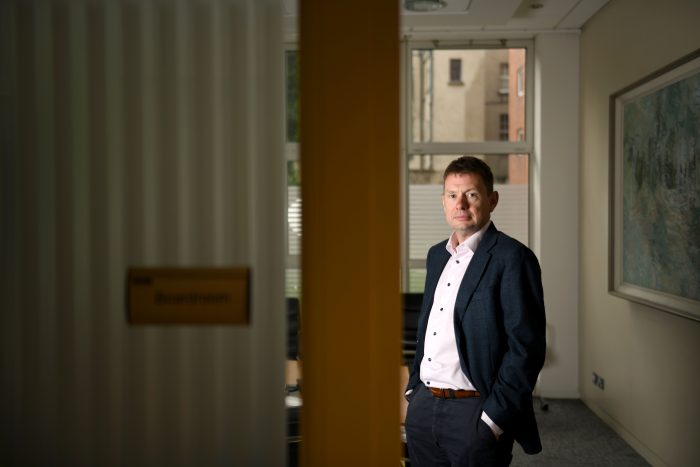
When we first sat down with KPMG managing partner Seamus Hand in 2020, the pandemic had shuttered the economy and there was an uneasy uncertainty about the outlook for the future. When we spoke, Hand talked about the need for liquidity and for tailored government interventions.
We caught up with the accountant a year later, when he expressed his concerns that the recovery could be hampered by businesses being unable to access the right pool of talent.
How, after years of approaches, Quintas found the right buyer in the private equity-backed Xeinadin
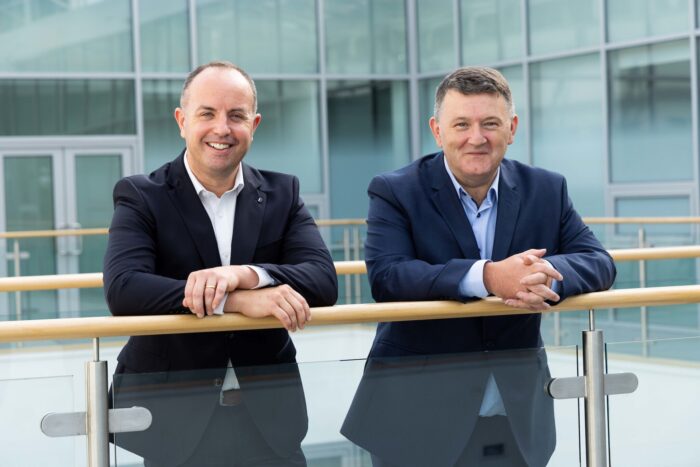
By his own count, Paul O’Connell had been fielding at least one call or email inquiry every two weeks over the past few years inquiring whether Quintas, the Cork accountancy and wealth management firm that he leads, was on the market.
With 70 staff and deep relationships with many well-known SMEs and family-owned businesses in the south of Ireland, Quintas was a natural target for a firm looking to expand its footprint in the region.
However, O’Connell, who took over as managing partner of the firm in 2021, gently rebuffed the advances. That was until he got a call from the Xeinadin Group in 2022.
“We weren’t actively seeking Xeinadin Group out. But the opportunity presented itself just over 12 months ago – July 2022 – when Xeinadin reached out and asked would we be open to having a chat. So we did. We sat down, and it went from there,” he told The Currency days after the deal closed.
O’Connell explained why the deal made sense, and how it came about.
Michael McAteer: “I’m a problem solver at heart, that’s what I like doing”
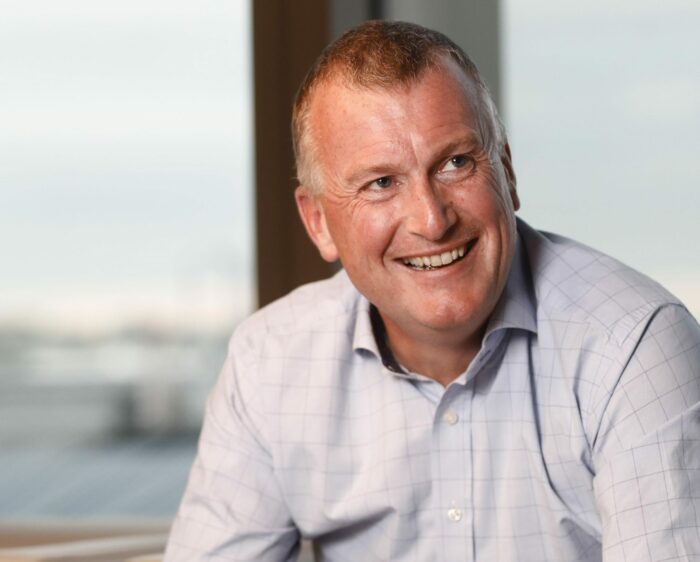
In a different era, during the dark despair of the financial crisis and the stubborn economic downturn that followed it, it was an ominous sign when Michael McAteer appeared in your boardroom.
After all, when an insolvency specialist like McAteer arrived at your door, you knew you were in trouble. And during that period, McAteer was in a lot of boardrooms; liquidating a slew of high-profile companies, restructuring others.
A partner with Grant Thornton, he was joint administrator to Quinn Insurance and acted as examiner to Eircom, The Sunday Business Post, and Aer Arann.
In January 2018, he was installed as managing partner of the firm, and he held the position for the following six years, handing over the reins to Steven Tennant at the start of this month. During that period, headcount at the advisory firm increased from 1,400 to almost 3,000, while revenues ballooned from €118 million to €300 million.
Even during his period in charge, he continued to take on high profile appointments, restructuring the pharmaceutical giant Mallinckrodt twice, for example.
Despite stepping back from the leadership role, McAteer is remaining with Grant Thornton, and he is now free to take on external roles. In recent times, he has received a number of offers to chase from.
From being a figure of fear in boardrooms during the crash, McAteer is now being welcomed there as an independent director. He talked about his career pivot.
Feargal O’Rourke: “100% turnout, 100% support. My mother thought it was like Kim Jong-un”
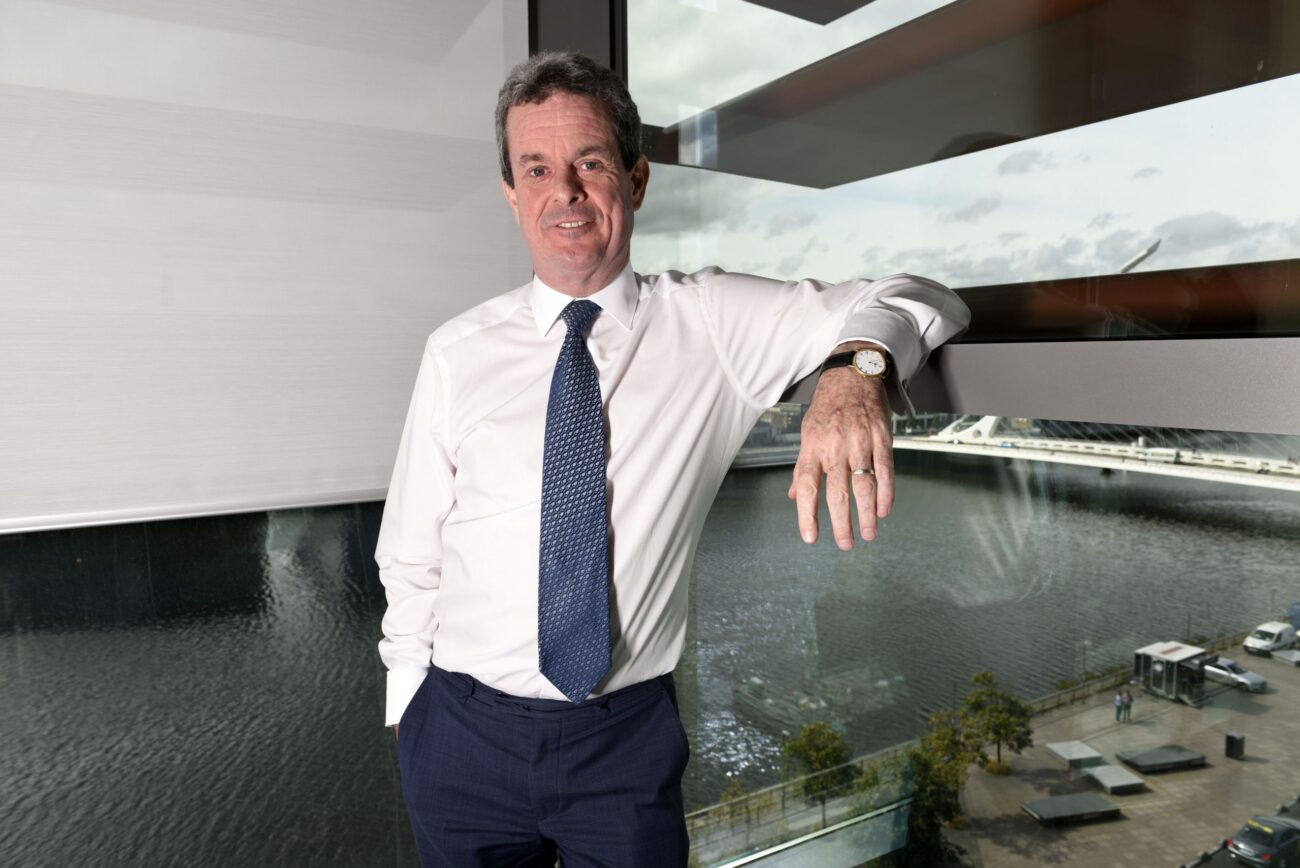
Fergal O’Rourke is one of Ireland’s most high-profile accountants. Unlike many other accountants, O’Rourke revels in public discourse – from radio appearances to Twitter debates.
Now the chair of IDA Ireland, when we spoke to him, he was still managing partner of PwC in Ireland. In this interview, he spoke about his career, his role in multinational tax planning, and the wider Irish economy.
Kieran Wallace on Quinn, IBRC and how Covid-19 will impact retail, commercial property and Irish business
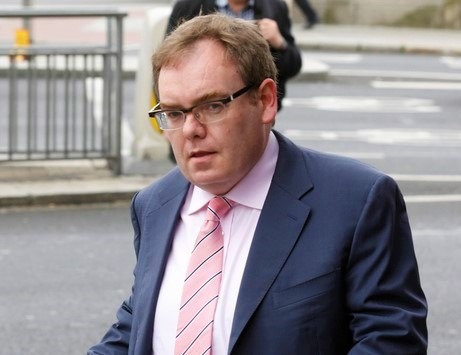
During the last crisis, Kieran Wallace liquidated a bank and battled with billionaires. In a 2020 interview with The Currency, the then-head of insolvency with KPMG talked about his high-profile cases and gave his assessment of how the pandemic was impacting various sectors of the economy. Since the interview, Wallace left KPMG to launch Interpath Advisory in Ireland.
“We are known for having clusters of industry coming into the country. But it’s not quite as clear what we have coming out”
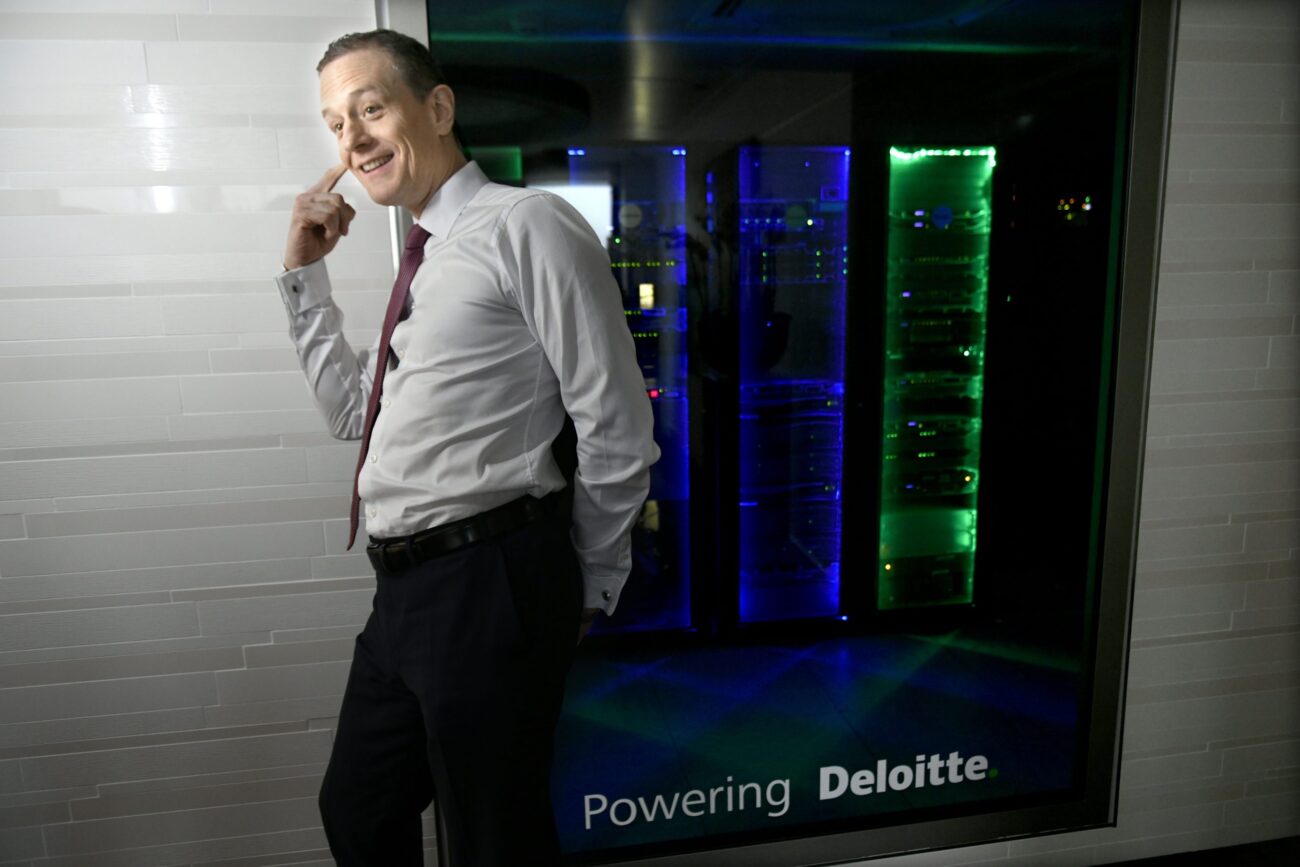
Deloitte managing partner Harry Goddard leads a firm with 90 partners and 2,700 staff. In this interview, he talked about his rise to the top, the future of work, climate change and the issues facing the Irish – and global – economy. “So, what is my job? My job is to create the future firm and the future firm in the context of the change in regulation, the potential with technology and the potential that we now have being part of a larger organisation,” he said.
“Our goal is to create a large dominant player in the SME space”
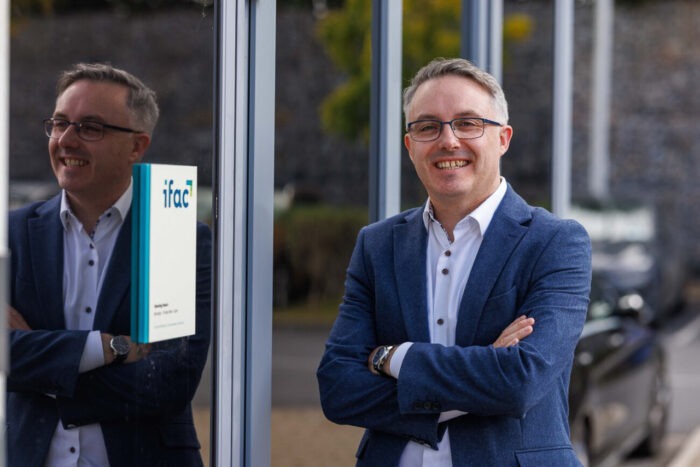
Despite his youth, it is closing in on 20 years since John Donoghue joined the farmer-owned accountancy co-op Ifac and almost 10 years since he became its chief executive.
When he took over as chief executive, the firm had 150 employees (augmented by 150 contract bookkeepers) and revenues of €15 million. Under his watch, revenues will increase this year to between €38 million and €39 million, while the headcount has risen to 400 (the number of contract bookkeepers, individuals who manage the books for a small number of farmers, has remained static). In this interview, he explained his plan to turn the farmer-owned accountancy co-op into a dominant player in the SME market.
The State’s hardest job: KPMG’s Michele Connolly on the delivery of complex infrastructure projects

Michele Connolly is KPMG’s head of corporate finance and leads its infrastructure practice. She has advised on many of the state’s biggest infrastructure projects from ports to tunnels, housing and hospitals. She has witnessed first-hand the best and worst of Ireland’s infrastructure delivery. In this interview, she talked about the complexities of building large projects.
“A tax incentive is not a bad thing. And I think politicians should stop worrying that it is”
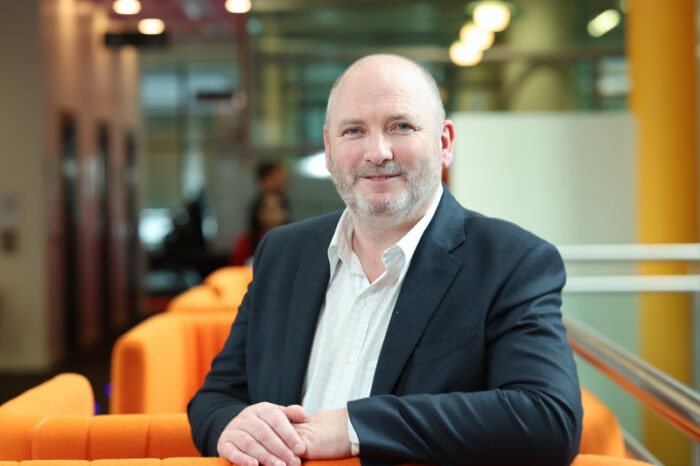
Paraic Burke heads up taxation at PwC. He believes that a small number of tweaks in the upcoming budget could have a big impact for domestic businesses, including changes to the rules around angel investing and a change to the lifetime limit for Entrepreneur Relief.
In this interview, he talks tax breaks, FDI, and the tax policies of US election candidates.
